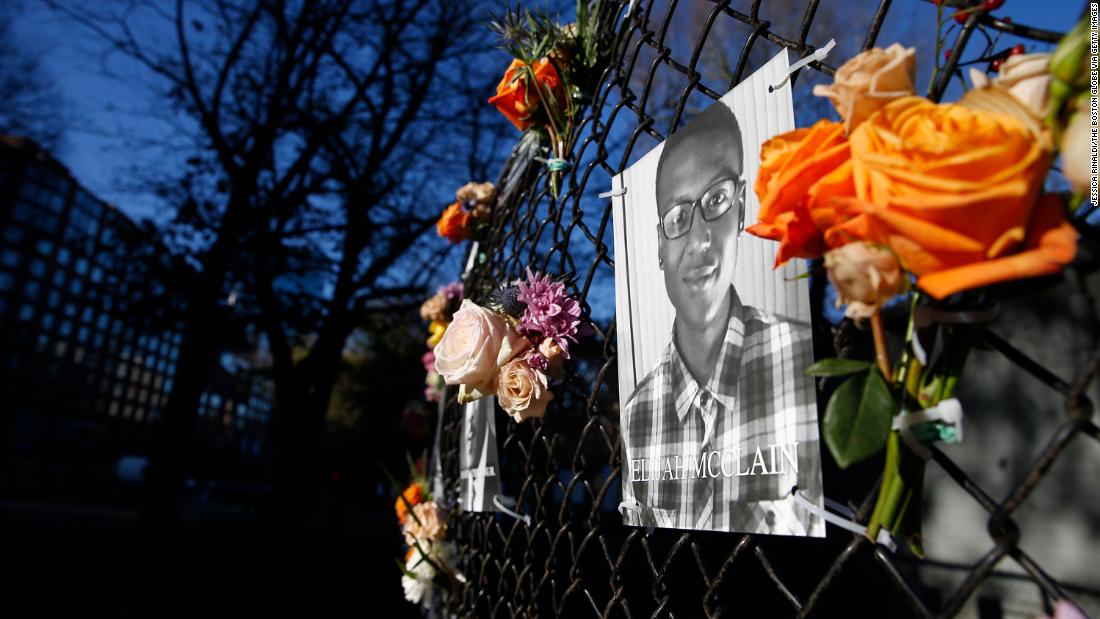
Authorities claimed these Black men had excited delirium just before they died. But the diagnosis itself is a problem and should be abandoned, a new study says
CNN
The term excited delirium is "scientifically meaningless," the study says, and should be replaced with an approach that prioritizes quick treatment of the underlying causes of behavior that first responders encounter, as well as expanding who responds to emergency calls.
But Floyd did not meet any of the 10 criteria used by many to diagnose "excited delirium," a police surgeon testified later in the murder trial of the second officer, Derek Chauvin. And an independent autopsy found the 46-year-old died during the 2020 encounter of "asphyxiation from sustained pressure" when his neck and back were compressed.
That same year, Elijah McClain was diagnosed with "excited delirium" by paramedics in Aurora, Colorado. McClain was placed in a carotid hold by police and injected with ketamine when paramedics arrived. The medics never checked the 23-year-old Black man's vital signs, talked to him or touched him before making the diagnosis, a Colorado grand jury found. McClain was declared brain dead three days later.

Tulsi Gabbard, Donald Trump’s pick to lead the intelligence community, was briefly placed on a Transportation Security Administration list that prompts additional security screening before flights after her overseas travel patterns and foreign connections triggered a government algorithm earlier this year, three sources familiar with the matter told CNN.










